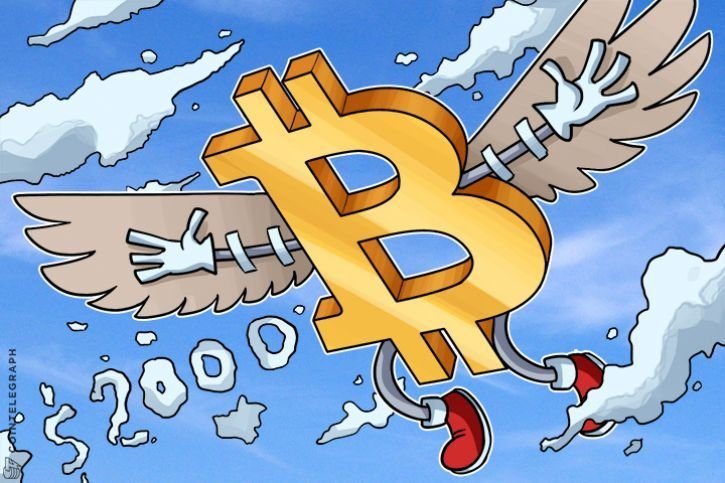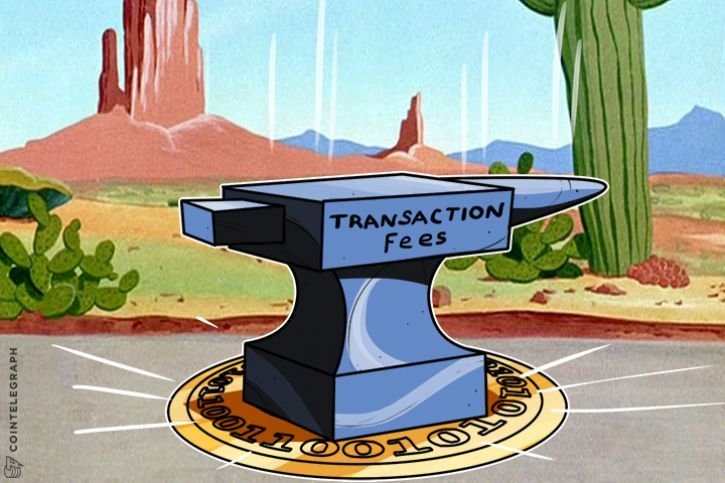
Bitcoin has fallen almost 12 percent in 24 hours as the reality of the Aug. 1 scaling deadline unsettles markets.
Current trade prices according to Coinmarketcap, which averages readings from across major exchanges, shows Bitcoin at $2,076 - its lowest price for two months.
The knock-on effects for altcoins in the top 10 were as palpable as ever, with Ethereum, Litecoin and others following Bitcoin downhill.
Ethereum has fared particularly badly over the past week, with monthly losses to its market cap now nearly $18 bln.
As always, internal reactions with cryptocurrency were mixed, some despairing while others are eyeing a keen buying opportunity.
While a general consensus points to the upcoming hard fork probability as the principal motivation for market uncertainty, mainstream media have been quick to sound the alarm about Bitcoin once again.
“Rival factions of computer whizzes who play key roles in Bitcoin’s upkeep are poised to adopt two competing software updates at the end of the month,” Bloomberg reported Friday, announcing Bitcoin could be “nearing a total meltdown.”
“That has raised the possibility that Bitcoin will split in two, an unprecedented event that would send shockwaves through the $41 bln market.”
Ari Paul, Tuur Demeester ‘Look Forward’ To Up To $1k Bitcoin Fees

Bitcoin transaction fees continue to divide, with two well-known commentators stating they “look forward” to paying up to $1,000 to send Bitcoin.
As Bitcoin’s mempool has all but emptied in recent weeks, transaction fees have likewise rapidly decreased.
Nonetheless, the future could see the tables turn once again, entrepreneurs Ari Paul and Tuur Demeester suggested Friday.
I'm looking forward to paying $100 for an on-chain Bitcoin transaction in 2025. That will mean it's wildly successful as a settlement layer.
— Ari Paul (@AriDavidPaul) July 14, 2017
In a Twitter exchange, Paul, who is a managing partner of BlockTower Capital, said he was “looking forward to to paying $100 for an on-chain Bitcoin transaction in 2025.”
“That will mean it's wildly successful as a settlement layer.”
Demeester responded by raising the stakes considerably, saying that for him, $1,000 per Bitcoin transaction would still represent value for money.
“I look forward to $1,000. An average LBMA physical gold transaction is worth $7 mln, it's conceivable for on-chain TX moving that way,” he argued.
I look forward to $1,000. An average LBMA physical gold transaction is worth $7 million, it's conceivable for on-chain TX moving that way.
— Tuur Demeester (@TuurDemeester) July 14, 2017
The suggestions predictably received some critical attention from other users, Paul highlighting the expense and cumbersomeness of current international settlement infrastructure to show Bitcoin at $100 was still cheaper.
“[T]he cost today is much higher than $100, it's the cost of a massive banking bureaucracy and tens of billions in legal costs,” he wrote.
Fee predictions such as these from cryptocurrency’s leading experts are not new.
In early June, when fees were considerably higher, ex-Bitcoin Foundation Executive Director Bruce Fenton said he thought users were “willing to pay $20+,” while Blockstream’s Adam Back put the figure, like Paul, at $100.
Visa: ‘No One Embraces Digital Currency Benefits More Than Us’

A senior Visa executive has said “no one” is more receptive of digital currency’s “benefits” than the international payment platform.
In an interview with Huffington Post, head of global Merchant sales and solutions Jack Forestell said Visa’s mobile products for the developing world - specifically mVisa - were “opening doors” for unbanked citizens.
“This type of digital solution has helped open doors for people who were previously off-the-grid or unbanked, which in turn has created entrepreneurial opportunities and reduce friction in how people pay and get paid,” he said.
Entry into Blockchain
When asked about Visa’s approach to cashless societies, Forestell said “customer demand” formed the basis of the company’s roadmap.
“We are creating incentives for merchants to remain competitively connected to their consumers and grow with their consumers. As the world’s largest payments technology company, no one embraces the benefits of digital currency more than we do.”
While Visa is traditionally thought of as the major competitor to the Bitcoin-based inclusive economy, the payments giant has accelerated its entry into Blockchain adoption this year.
Last month, job advertisements began surfacing specifically targeting Blockchain engineers with experience in so-called distributed ledger technology - the preferred term for permissioned Blockchains which run under centralized control.
In the race to serve the billions of people shut out of the traditional banking system, Blockchain startups using cryptocurrency - principally Bitcoin - have been at work creating a market for several years.
BitPesa, which operates money transfer services in Kenya and internationally, earlier this month made the top spot in a list of top 50 Blockchain startups from CEX.io.
I like cryptocurrency